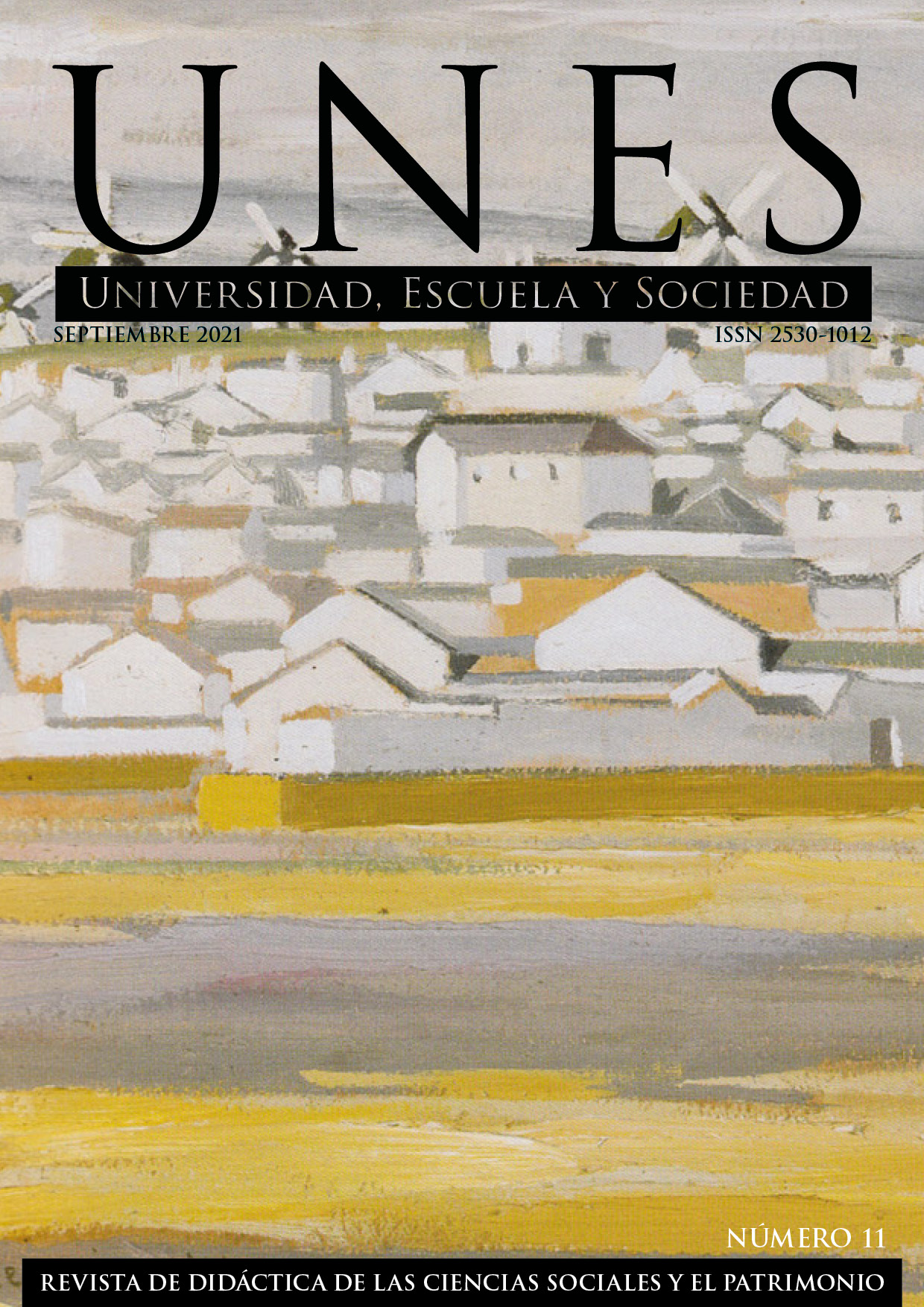The teaching of sociology and its teachers in Brazil and Spain: some initial notes
some initial notes
DOI:
https://doi.org/10.30827/unes.i11.20978Keywords:
teaching sociology, sociology teachers, school subject, secondary education, bachilleratoAbstract
In recent years, the teaching of sociology has gained space in the academic debate in several scientific associations, but it still occupies a peripheral place in the research agenda of sociology. In order to contribute to this discussion, we present the initial data of a survey carried out with sociology teachers in Brazil and Spain, which has been carried out with a reduced number of interviewees, so that the results have value as a qualitative approximation to the circumstances of both educational systems. Through interviews we seek to understand how they perceive the contribution of the academic training they have to the teaching of sociology in secondary education, as well as the more general assessment they carry out on the teaching of sociology. Despite the differences found in the two countries, there is a convergence among teachers in affirming the importance of this school subject for the formation of critical thinking in secondary education students.
Downloads
References
Alonso, R. F. (2020). La difícil coordinación en la enseñanza de la Sociología. Revista Española de Sociología, 29 (2), 401-409. DOI: http://dx.doi.org/10.22325/fes/res.2020.23.
Bodart, C. N.; Azevedo, G. C. y Tavares, C. S. (2020). Ensino de Sociologia: processo de reintrodução no Ensino Médio brasileiro e os cursos de Ciências Sociais/Sociologia (1984-2008). Debates em Educação, 12 (27), 214-235. DOI: http://dx.doi.org/10.28998/2175-6600.2020v12n27
DeCesare, M. (2005). 95 years of teaching high school sociology. Teaching Sociology. 33 (3), 236-251.
DeCesare, M. (2009). Presenting Sociology’s Four «Faces»: Problems and Prospects
for the High School Course. En: V. Jeffries (Ed.) Handbook of Public Sociology (pp. 187-204). Maryland: Rowman & Littlefield Publishers.
Díaz Catalán, C., Luxán, A. y Navarrete, L. (2016). Los sociólogos ante el mercado de trabajo. Revista Española De Sociología, 25 (3), 45-71. DOI: https://doi.org/10.22325/fes/res.2016.7
Fernández, M. T. V. (2020). Algunas reflexiones sobre la situación del grado en Sociología en España. Revista Española de Sociología, 29 (2), 411-418. Doi: http://dx.doi.org/10.22325/fes/res.2020.24
Gómez-Carrasco, C. J., López-Facal, R. y Rodríguez-Medina, J. (2019). La investigación en Didáctica de las Ciencias Sociales en revistas españolas de Ciencias de la Educación. Un análisis bibliométrico (2007-2017). Didáctica de las ciencias experimentales y sociales, 37, 67-88. DOI:10.7203/DCES.37.14440
Meucci, S. (2011). Institucionalização da Sociologia no Brasil: primeiros manuais e cursos. São Paulo: Hucitec;Fapesp.
Moraes, A. C. (2011). Ensino de Sociologia: periodização e campanha pela obrigatoriedade. Cadernos CEDES, 31 (85), 359-382. DOI: 10.1590/S0101-32622011000300004
Mucchielli, L. (2001). O nascimento da sociologia na universidade francesa (1880-1914). Revista Brasileira de História. 21 (41), 35-54.
Neira, T. R. (1979). La enseñanza de la sociología en el bachillerato. Revista de bachillerato. (12), 48-53.
Oliveira, A. (2013). Revisitando a história do ensino de Sociologia na Educação Básica. Acta Scientiarum. Education, 35(2), 179-189. DOI: 10.4025/actascieduc.v35i2.20222
Oliveira, A. (2020). La enseñanza de las Ciencias Sociales en Brasil hoy. REIDICS: Revista de Investigación en Didáctica de las Ciencias Sociales, 7, 207-222. DOI: 10.17398/2531-0968.07.207
Oliveira, A. (2021a). En busca de una didáctica de la sociología: aportes desde la educación secundaria brasileña. Didáctica de las ciencias experimentales y sociales, (40), 21-34. DOI: 10.7203/DCES.40.17651.
Oliveira, A. (2021b). Máster para la formación de profesores en Ciencias Sociales en Brasil y España:algunos elementos comparativos. Revista Española De Educación Comparada, (39), 271–284. DOI: 10.5944/reec.39.2021.27739.
Oliveira, A. (2021c). Reading the world through the educational curriculum: The Social Sciences curriculum in Brazil in the context of the rise of conservatism. Bellaterra Journal of Teaching & Learning Language & Literature, 14 (2), 1-16. DOI: 10.5565/rev/jtl3.948.
Oliveira, A., Binsfeld, W., & Trindade, T. (2018). A reforma do ensino médio e suas consequencias: o que pensam os professores de sociologia?. Revista Espaço do Currículo, 11 (2), 249–259, 2018. DOI: 10.22478/ufpb.1983-1579.2018v2n11.36073.
Pagès, J. (2002). Aprender a enseñar historia y ciencias sociales: el currículo y la didáctica de las ciencias sociales. Pensamiento Educativo, 30, 255-269.
Raizer, L., Caregnato, C. E., Mocelin, D. G., & Pereira, T. I. (2017). O ensino da disciplina de Sociologia no Brasil: diagnóstico e desafios para a formação de professores. Revista Espaço Acadêmico, 16 (190), 15-26.
Santisteban, A. y Pagès, J. (2007). La educación democrática de la ciudadanía. Una propuesta conceptual. En R. Mª Ávila Ruiz; J. R. López Atxurra; E. Fernández de Larrea. (eds.), Las competencias profesionales para la enseñanza-aprendizaje de las ciencias sociales ante el reto europeo y la globalización (pp. 353-367). Bilbao: AUPDCS.
Silva, I. F., Alves Neto, H. Fy Vicente, D. V. (2015). A proposta da Base Nacional Comum Curricular e o debate entre 1988 e 2015. Ciências Sociais UNISINOS, 51 (3), pp. 331-342. DOI: 10.4013/csu.2015.51.3.10
Weber, S. (1996). O Professor e o papel da educação na sociedade. Papirus: Campinas.
Downloads
Published
How to Cite
Issue
Section
License
Authors being published in this journal agree to the following terms:
The authors retain their copyrights but guarantee the journal's right to be the first publisher of the work, licensed under a Creative Commons Attribution-NonCommercial-ShareAlike 4.0 International license, which allows others to share the work, provided that they acknowledge its authorship and initial publication in this journal.
Authors may separately subscribe additional agreements for the non-exclusive distribution of the work published in the journal (for example, including it in an institutional repository or publishing it in a book), with recognition of its initial publication in this journal.
Authors are allowed and encouraged to disseminate their work electronically (for example, in institutional repositories or on their own websites) before and during the submission process, as this may result in productive exchanges, as well as more and earlier citations of the works to be published (See The Effect of Open Access) (in English).






 ISSN-e: 2530-1012
ISSN-e: 2530-1012









